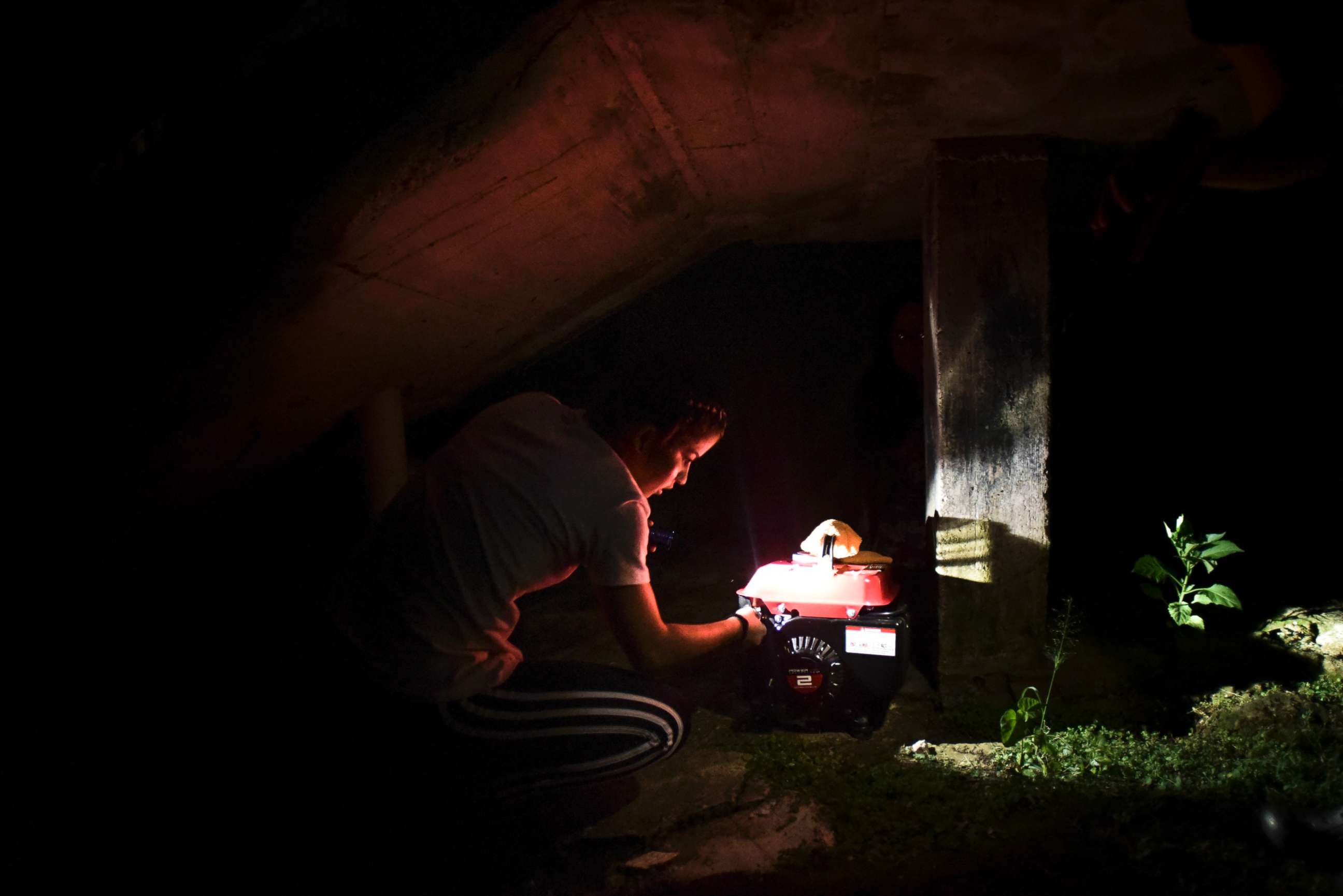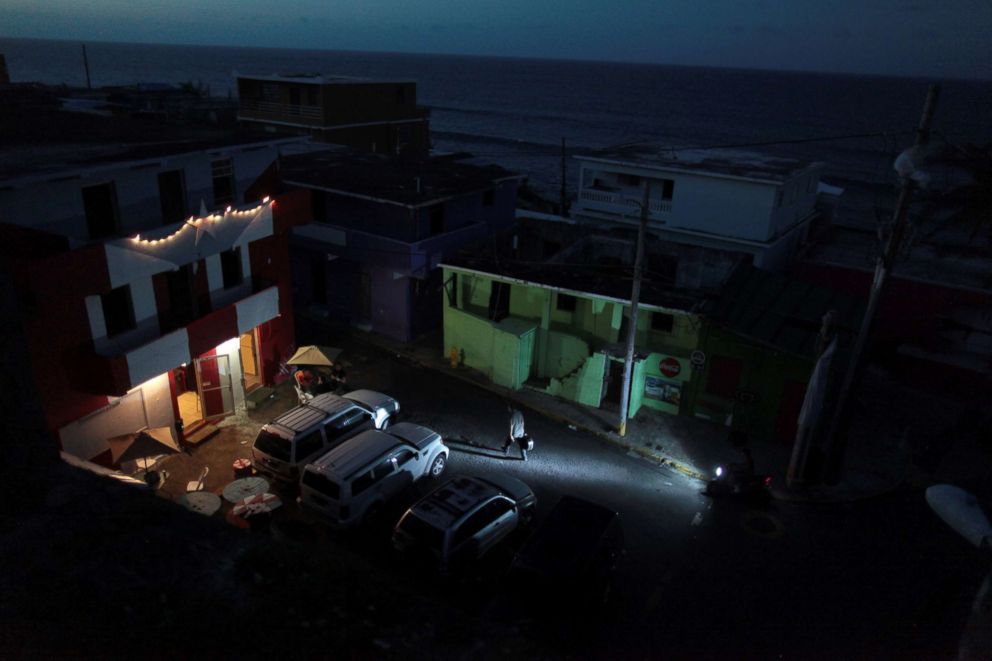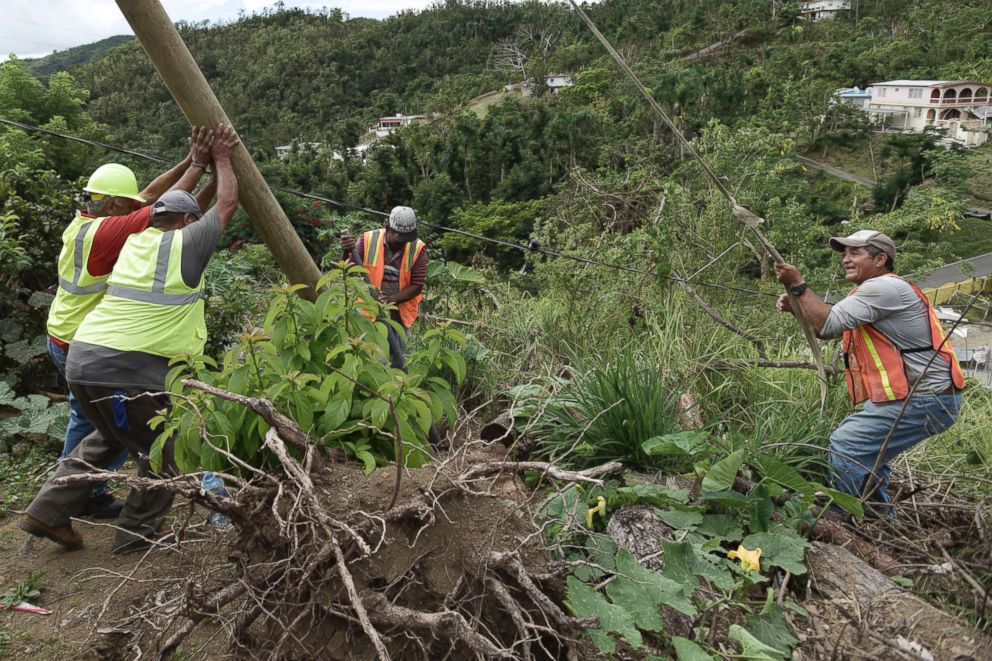Parts of Puerto Rico won't have power before late May, 8 months after Maria
The island’s residents were plunged into complete darkness when Maria hit.
— -- Some areas of Puerto Rico will not see power until as late as the end of May, about eight months after Hurricane Maria pummeled the island.
In a series of tweets, the U.S. Army Corps of Engineers said today that “achieving 95% restoration in areas with challenging terrain like Arecibo and Caguas, will take until mid-April and late-May respectively.”
About 95 percent of the island will see energy restoration by the end of March, the Army Corps of Engineers previously said.
The island’s 3.5 million residents were plunged into complete darkness when Maria made landfall as a Category 4 storm on Sept. 20.

Some of those working on power restoration efforts on the badly hit island have started leaving, the agency also confirmed.
“As a part of a natural progression of any emergency response, some contractors are beginning to responsibly draw down their workforce but have provided plans that allows them to complete as many assigned lines as possible,” the agency tweeted.
“The primary limiting factor to our progress has always been the delivery of materials, which is improving daily,” said Preston Chasteen, public affairs officer for the Army Corps of Engineers Task Force Power Restoration. “The number of workers has not been a limiting factor.”
The New York Times first reported that contractors working on energy efforts are leaving the island.
According to the Puerto Rico Energy Power Authority, 86.6 percent of energy customers have power on the island.

Lt. Gen. Todd Semonite, the commander of the Army Corps of Engineers, told ABC News last week that he was not happy with the progress made so far on the island.
"I am not satisfied that people in Puerto Rico should have to wait that much time for power," Semonite said. "But I am telling you, there are no other knobs I can turn to go any faster."
Semonite said that the final 5 percent of restoration, what he calls the “last mile,” would be the hardest.

"You might see me in three months from now and say, 'You are only at 99.6 percent.' Well, I am not going to run electricity up the side of a cliff to four houses that will probably never be rebuilt if that is the case,” Semonite said. "I don’t want to spend taxpayers' money getting lines to houses that are never going to be rebuilt."
The Puerto Rico governor’s office deferred to PREPA for comment on the news from the Army Corps of Engineers. PREPA deferred back to the Army Corps of Engineers for a response.




